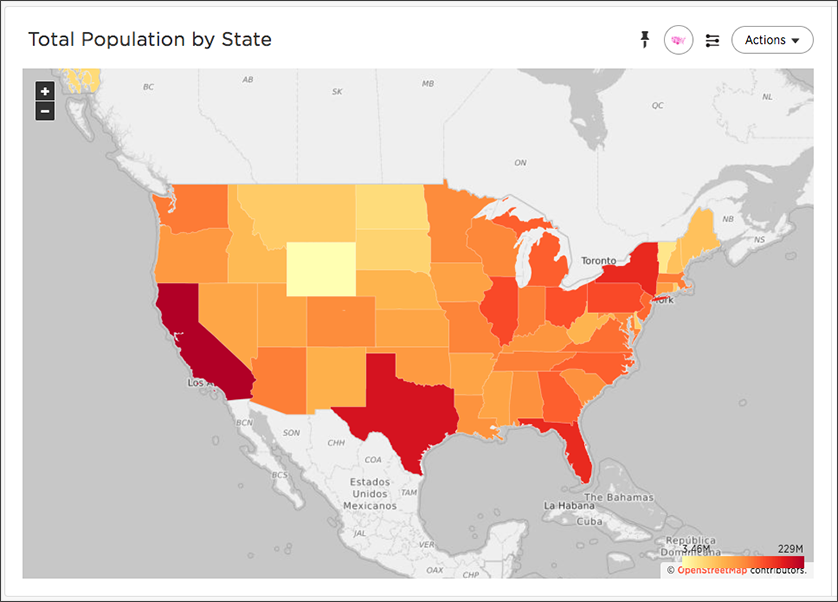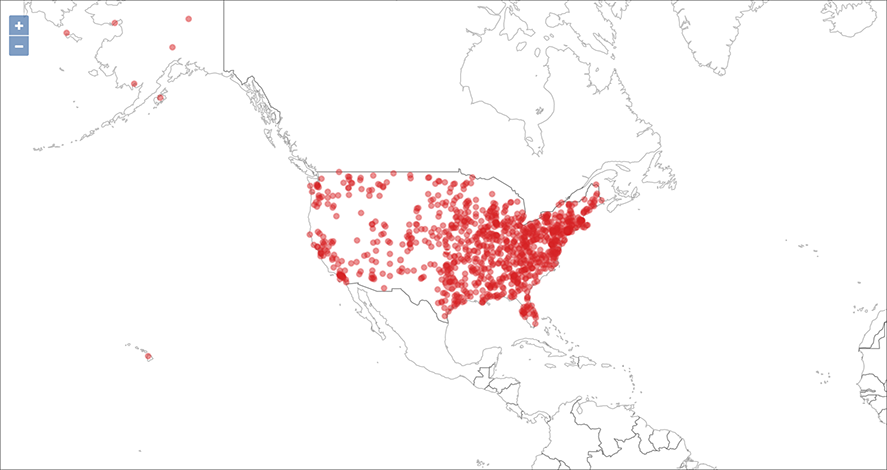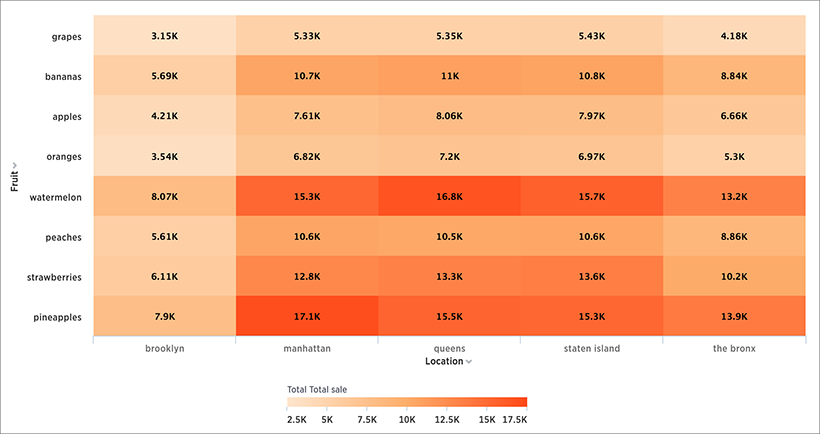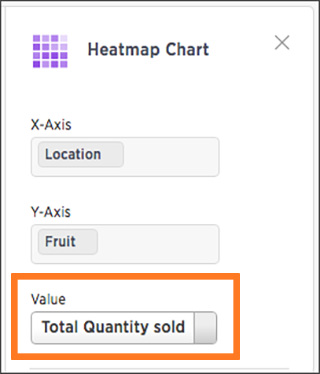Geo charts show data on a map by location. They are geo area, geo bubble, and geo heatmap charts. And these geo charts can display six types of geographical data, which are:
- Country
- State
- County
- Zipcode
- Point (latitude/longitude)
- Other sub-nation regions (for international countries)
In addition to the United States, ThoughtSpot also supports maps for the United Kingdom, Germany, Sweden, South Africa, and France.
Geo data that can be displayed
Here is a table that shows which GeoType data can be displayed using which geo chart type.
| GeoType | Geo chart type | Notes |
|---|---|---|
| Country | Geo area (default), geo bubble, geo heatmap | Can also be regions. |
| County | Geo area (default), geo bubble, geo heatmap | Only for counties in the United States. |
| Point | Geo bubble (default), geo heatmap | Must use both latitude and longitude columns. |
| State | Geo area (default), geo bubble, geo heatmap | Only for states in the United States. |
| Zipcode | Geo bubble (default), geo heatmap | Zip codes and zip codes +4 in the United States. |
| Other sub-nation regions | Geo area (default), geo bubble, geo heatmap | The display will depend on the type of administrative region chosen. |
For data to be displayed using geo charts, your administrator must configure it as geographical data. If you are expecting to be able to get a map visualization, but it isn’t available, contact your administrator so they can make the configuration.
Area charts
Geo area charts highlight the regions of interest. Point data (longitude/latitude) doesn’t work on geo area charts. Also, only geo area charts display boundaries for counties.

Your search needs one geographical column of granularity to be represented as a geo area chart.
Geo bubble charts
Geo bubble charts, like bubble charts, display the value of the measure by the size of the bubble. Zip code data makes the most sense for geo bubble charts.

Your search needs one geographical column or a pair of latitude and longitude columns to be represented as a geo bubble chart.
Heatmap charts
Heatmap charts are similar to treemap charts in that they both use a similar system of color-coding to represent data values. However, the heatmap does not use size to measure data, and instead requires an additional attribute.

The value of each cell depends on the measure you choose under Edit char configuration.
